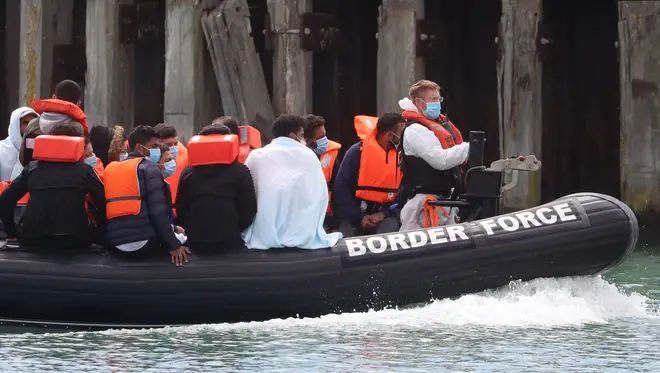
Iain Dale 7pm - 10pm
8 August 2020, 09:05

Fisherman tells Matt Stadlen how he picks up migrants in the channel
This fisherman opened up about helping migrants stuck in the Channel, telling LBC that sending them back to France isn't the answer.
As the number of migrants crossing the English Channel makes it to the headlines once again, Kent fisherman David phoned Matt Stadlen to set the record straight on the motivations of these people.
He reminded Matt that the UK is "a melting pot of different people," which he values immensely, as he excitedly began the conversation by stating that he was on his way to Spitalfields Market to buy fruit.
David's first experience with migrants in the Channel was last May, when he "picked up a 10 foot rubber dinghy," carrying what he assumed to be three different families.
"It was one of the most moving things that's ever happened to me in my life, seeing the fear in these kids' eyes," he stated. He went on to tell Matt that the mothers told him that they came from Iraq and chose the UK because they could speak English.
The mothers told David "there was no future for their kids," in Iraq, and because life is cheap in the country they willingly took the risk of sailing one of the busiest shipping routes in the world in a rubber dinghy.

This wasn't an isolated case for David. "We picked up four or five cases," in the past year he noted.
He admitted that he didn't take the migrants on board his ship. "If the boat went down we'd have saved them so we stayed alongside until the lifeboat came," which was nearly 90 minutes that he spent in conversation with these people.
The fisherman argued that "if you sort the reason out why these people are coming, then they won't come," making the case for the UK to try stabilise these war-torn countries, which will end the need for migration.
"They're coming to better the lives of their children."
"We've got to stop the reason they're coming," David concluded, "then we've got half a chance of controlling it."